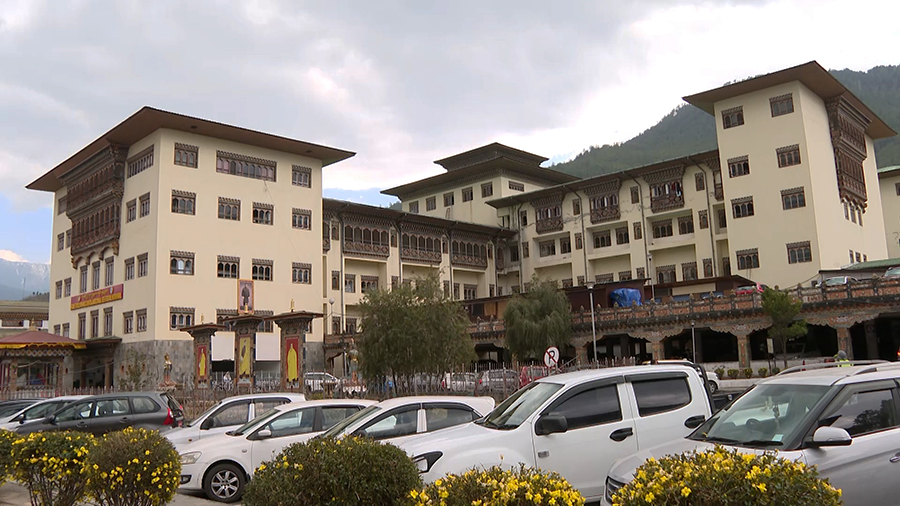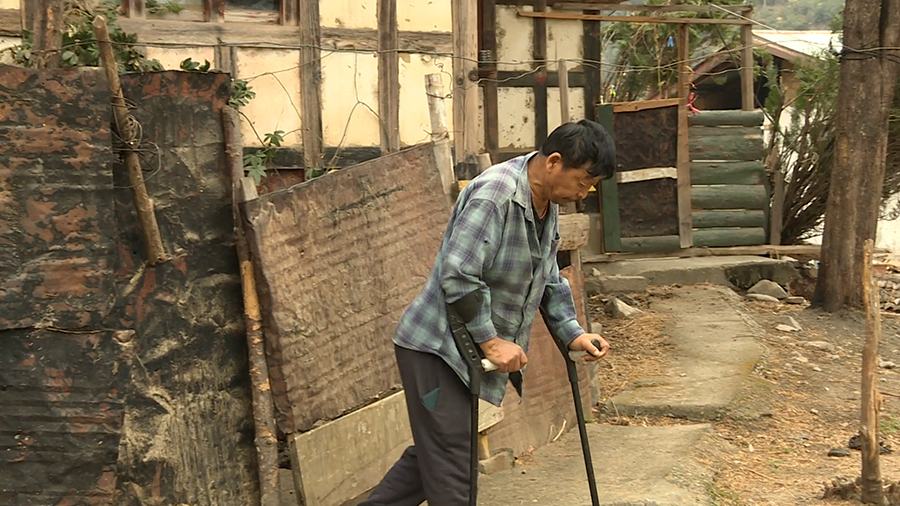 A warm meal, a kind word, and a little joy can bring comfort to those going through life-threatening illnesses. Since 2018, palliative care services in the country have helped 900 patients facing terminal illnesses, offering relief from pain and emotional distress. By addressing physical, psychological, and spiritual needs, palliative care is designed to prevent and relieve suffering by ensuring early identification, accurate assessment, and effective treatment of pain and other issues.
A warm meal, a kind word, and a little joy can bring comfort to those going through life-threatening illnesses. Since 2018, palliative care services in the country have helped 900 patients facing terminal illnesses, offering relief from pain and emotional distress. By addressing physical, psychological, and spiritual needs, palliative care is designed to prevent and relieve suffering by ensuring early identification, accurate assessment, and effective treatment of pain and other issues.
 61-year-old Ugyen has not been able to work for the past nine months due to kidney failure. He goes to the hospital twice a week for dialysis and sometimes finds it difficult to afford the 30-minute commute to the hospital and back home to Gidakom in Thimphu.
61-year-old Ugyen has not been able to work for the past nine months due to kidney failure. He goes to the hospital twice a week for dialysis and sometimes finds it difficult to afford the 30-minute commute to the hospital and back home to Gidakom in Thimphu.
“I have to go to the local taxi parking area to go to Khasadapchu. Sometimes I find a taxi, but other times I do not. When that happens, the taxi drivers in Thimphu say that the taxi is reserved and I have to pay between Nu 500 and 600. It can be difficult when we don’t have enough money.”
He lives with his wife and son. But on weekdays when his son leaves for work, it’s just the two of them managing on their own.
His wife, Zam has been suffering from inflammatory myopathy, which has left her permanently bedridden. Inflammatory myopathy is an autoimmune disease characterised by muscle inflammation and weakness, potentially affecting other organs and tissues.
Ugyen shares that it is often difficult to find a caregiver for his wife when he goes to the national referral hospital for his dialysis sessions.
For Ugyen and Zam, palliative care has alleviated some of their burdens, saving them time and money in hospital visits and providing relief from their pain.
“The nurses come here to provide us with check-ups and medicine without having to go to the hospital. They take our blood and ask us about our ailments, and then they give us the appropriate medication. This service is very helpful.”
The palliative-care team visits them at home once a month and whenever required.
Likewise, Tshering Samten, taking care of his grandparents in their 80s, says the palliative care has been a great support. Both recently suffered a stroke that has left them with limited mobility. They also have Chronic Obstructive Pulmonary Disease, a chronic lung condition. The palliative care team visits them daily except for Sundays.
“Their care is different from ours because they are trained professionals. Their treatment has helped us a lot. Before my grandparents were in constant pain, especially in their legs, but now they are doing better and experiencing less discomfort,” said Tshering Samten, Caregiver.
Doctor Kinley Bhuti, the only palliative care physician at the national referral hospital says the hospital provides holistic care for patients living with advanced cancer, heart failure, and chronic obstructive pulmonary disease among other terminal diseases. Their approach goes beyond medical treatment, incorporating spiritual and traditional healing.
However, she said that limited staff and cultural taboos around discussing death make it challenging to provide palliative care.
“Our patients, most of the time, were requested by their families and relatives not to share the news of their diagnosis and their poor prognosis part, their lifespan, which is very limited. So that is one part. And second one is talking about dying. Dying is still a very sensitive topic, you know. I think most of our people believe that talking about it brings bad luck. So, if we don’t talk about dying, then we are not able to give a very holistic and effective end-of-life care.”
She added that the palliative care unit at the national referral hospital collaborates with health officials from other districts to provide basic palliative care to those in need.
According to the health ministry, health officials from ten districts have received training in palliative care so far.
This initiative aims to address the shortage of human resource in the country while enhancing the delivery of palliative care. The training has been extended to physicians, drungtshos, district public health officials, and non-communicable disease focal persons, among others.
The World Health Organisation recognises access to palliative care as a fundamental human right and a responsibility of healthcare providers.
Singye Dema
Edited by Sonam Pem









